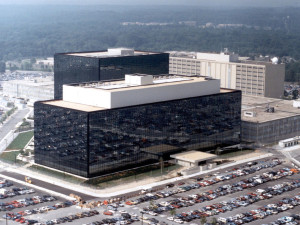Three prominent U.S. senators have in a federal court filing questioned the claim of the National Security Agency that its bulk collection of phone records is required for intelligence purposes.

The brief argues that after extensive review of the surveillance, the senators have seen no evidence that the bulk collection has provided any “intelligence of value” that could not have been arrived at through less intrusive methods.
Mark Udall, a Democrat from Colorado, Ron Wyden, Democrat senator from Oregon and Martin Heinrich, a New Mexico Democrat, all members of the U.S. Senate Select Committee on Intelligence, said Tuesday they filed an amici curiae (friends-of-the-court) brief in U.S. District Court for the Northern District of California, San Francisco division.
In the First Unitarian Church v. National Security Agency suit in the court, the church and other organisations claim that the bulk phone records collection programme has violated their constitutional rights including that of free association.
The government’s collection of bulk phone records first came to light in disclosures in June by former NSA contractor, Edward Snowden, that the government was collecting phone records of Verizon’s customers under an authorisation from the Foreign Intelligence Surveillance Court. The requirement to turn in metadata applied to calls within the U.S., and calls between the U.S. and abroad. The government subsequently confirmed that there was an authorisation to ask Verizon to produce telephony metadata on an ongoing daily basis, and also got the authorisation extended by the court.
“The government has at its disposal a number of authorities that allow it to obtain the call records of suspected terrorists and those in contact with suspected terrorists,” according to the filing, which argues that “more targeted authorities could have been used to obtain the information that the government has publicly claimed was crucial in a few important counterterrorism cases.”
The government has said it needed the collection and storage of such bulk data for its analysis tools to be effective, though it has filters in place to prevent unauthorised access to personal data.
The senators have also said that they are worried that the government’s theory interpreting Section 215 of the Patriot Act to permit the bulk collection of Americans’ records is not limited to phone records. “The government’s legal interpretation of Section 215 could be extended to authorise bulk collections of information far beyond the call records at issue in this case, such as financial or medical records, or even records indicating the location of ordinary Americans,” according to the filing.
The U.S. Central Intelligence Agency collects data in bulk on international money transfers, under authorisation of the FISC, which can include personal information on U.S. citizens, according to recent reports.
The three senators with some of their colleagues have already introduced legislation to reform the surveillance laws of the U.S., including the Foreign Intelligence Surveillance Act.
The U.S. Supreme Court on Monday denied a petition from the Electronic Privacy Information Center, which asked the court to vacate the order by the FISC authorising the collection of Verizon phone data. The group had decided to approach the Supreme Court directly, without taking recourse to lower courts, as it held that only the Supreme Court had the proper jurisdiction to review a FISC order.





